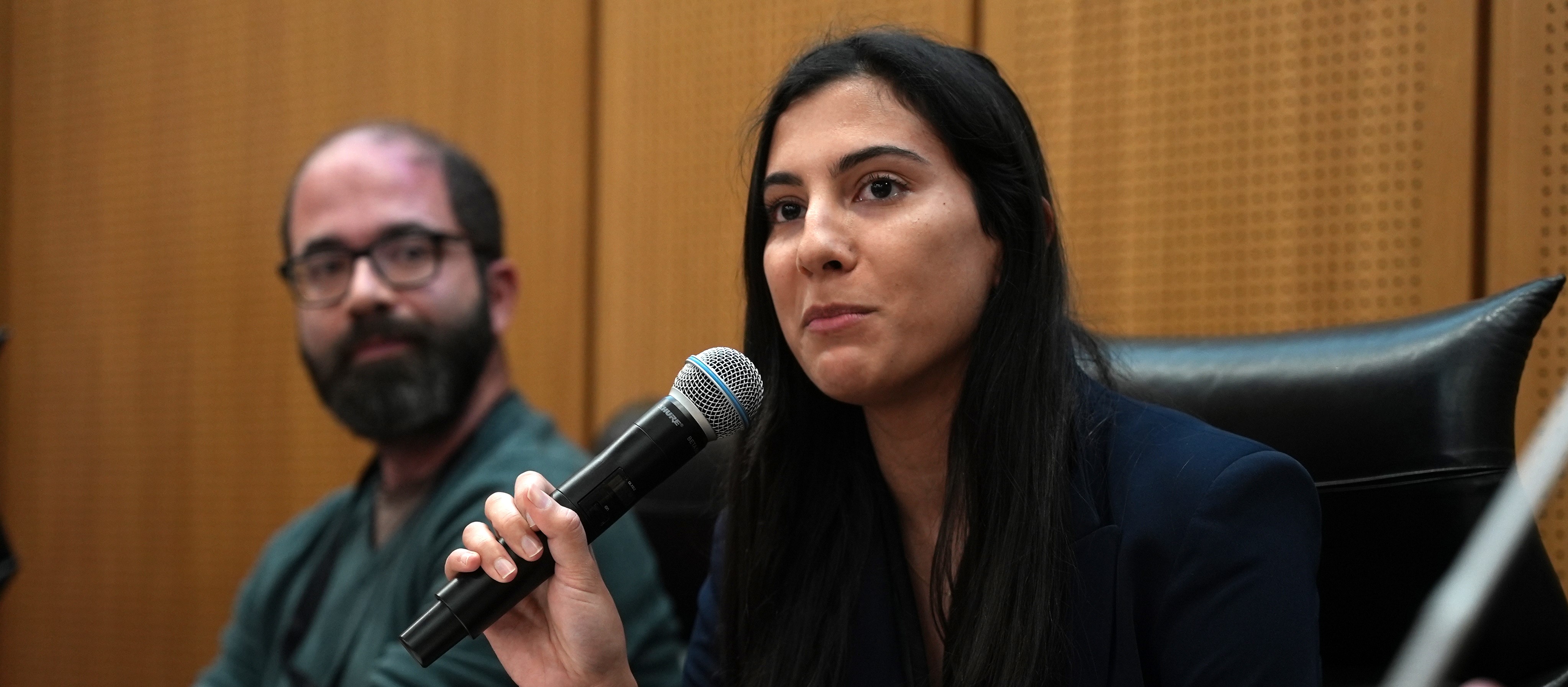
Building Resilience in the Age of Algorithms: “How to Fight Fake News and Disinformation, Particularly at a Time of AI”
On April 14–15, the European IQ Media Conference on “Innovation in the Media” was organized by the Group Nice-Matin and the National and Kapodistrian University of Athens. On the first day of the conference, the panel titled “How to fight fake news and disinformation, particularly at a time of AI?” featured Aliya Itzkowitz (Engagement Manager at FT Strategies), Arthur Grimonpont (Representative from Reporters Without Borders), Christos Gavalas (Product Manager at ATC), Olaf Steenfadt (Founder and Managing Director at Global Media Registry, GMR), Aimilos Perdikaris (Chairman of the Board at ANA-MPA / Athens Macedonian News Agency), and Giannis Dimitrellos (Editor-in-Chief at Reader.gr). The conference addressed key topics such as fighting disinformation in the age of AI, the impact of artificial intelligence on journalism, new methods for combating disinformation, preserving ethical values in reporting, and the importance of media literacy.
This conference highlights the challenges posed by disinformation in the age of artificial intelligence, particularly for journalists and news agencies. The participants, coming from various media backgrounds, share their experiences and concerns regarding the creation, manipulation, and verification of information.
They emphasize the crucial importance of fact-checking, transparency in journalistic processes, and public education in response to the spread of false information. The conversation also explores the changing role of technology platforms and the need for information professionals to adapt and collaborate in order to preserve credibility and trust in public discourse.
🛑The Problem of Disinformation in the AI Age
The speakers were asked how they deal with disinformation in their personal and professional lives. Giannis Dimitrellos explained with his experiences from his professional background.
“I have been in this industry for more than 10 years, I have seen the blogging, the streaming, all this phase and now the AI. What is happening with this AI and disinformation ? I think the biggest struggle with AI is that we tend, as journalists, to be lazy and forget what we do, our values. Like searching for truth, having integrity. We search for fact and not fiction”
After, Aliya Itzkowitz pointed out that the topic of disinformation is often overlooked and not enough part in the common conversations about AI. She placed this issue as an existential threat to her work in this field and added the statistic to support this idea, that only 40 % of people trust legacy media.
One of the speakers Aimilios Perdikaris approaches the topic with a more optimist view and he said “AI will not vanish us, but it will surely change the way we are working. Just like the other technological developments, the telephone, the computer etc.”
💪 Impacts of AI on Trustworthy Journalism
Arthur Grimonpont from Reporters Without Borders addressed issues such as artificial intelligence and disinformation, the effects of synthetic news on journalism, and drew attention to how powerful and important a tool artificial intelligence is, especially in creating disinformation and fake news. In his
presentation, Grimonpont highlighted the example of deepfake, the speed of the spread of disinformation created with the cooperation of artificial intelligence and its causes/consequences, and highlighted what needs to be done. Grimonpont also emphasized the importance of media independence and autonomy and concluded his presentation with RSF’s recommendations for digital platforms. RSF proposes promoting reliable sources of information and labeling synthetic content as key solutions.
👏 Strategies for Combating Disinformation
In the evolving fight against disinformation, Olaf Steendfadt emphasized the need to reflect critically on our past approaches : “It is important to ask ourselves what has worked and what has not worked in the fight against disinformation and to understand the evolution on that matter.” While the early response was led by academia, the journalistic community, and civil society with political actors gradually becoming involved, the conversation has since shifted from a media and communication issue to one of national security and defense. Accordingly, “the response needs to adapt,” including the funding mechanisms and instruments that support these efforts. Steendfadt also highlighted the need for clear identification systems and terminology in global media, stating : “We need a protective layer between big tech and consumers (browser plugins, AI agent, protocols, and standards).”
In support of the broader message, the quote by journalist and Nobel laureate Maria Ressa was referenced during the session : “Without fact you can not have truth, without truth you can not have trust and without all three we have no shared reality and there [is no] democracy.” Speakers further reinforced the vital importance of fact-checking and rigorous verification of sources, content, and audiovisual materials as key strategies to counter disinformation in the digital age.
✍️ Izlen Tayfur and Emie Arblade (Students at the University of Athens)
📸 Franck Fernandes (Nice-Matin)

